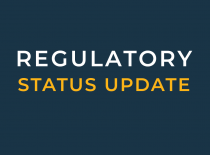All Posts
Across multiple sessions, speakers at OneCape 2025 examined Cape Cod’s infrastructure not just as pavement and projects, but as the foundation of daily life, safety, and community character. Together, the discussions highlighted how bridges, streets, transit, preservation, and redevelopment can be designed with people at the center.
Across Cape Cod, leaders are moving from diagnosing the housing crisis to delivering solutions. At OneCape, state officials, local innovators, and community partners highlighted strategies, from adaptive reuse to deed-restricted rentals, that are showing that the Cape can expand year-round housing while preserving its character.
The impacts of climate change, including erosion, sea level rise, flooding, and increased coastal storms, are reshaping Cape Cod today. At the 2025 OneCape Summit, regional and state leaders addressed the urgency of climate challenges and the innovative responses already underway.
At this year's OneCape Conference, Erin Perry, Deputy Director of the Cape Cod Commission, reflected on the 10-year journey since the adoption of the region's Section 208 Water Quality Management Plan. She reminded the audience that in 2015, wastewater was the central topic of discussion: "Ten years ago at OneCape, all we talked about was wastewater - it was the entire content of the summit."
This Regulatory Update provides a status on projects currently under review by the Cape Cod Commission. Visit www.capecodcommission.org/regulatory for a full overview of our Regulatory program and answers to frequently asked questions.
OneCape 2025 sessions on economy, culture, and placemaking highlighted how fiscal health, vibrant downtowns, and creative communities are inseparable from Cape Cod’s future. Together, they made the case that building resilience isn’t just about housing, water, or climate, it’s also about identity, connection, and the cultural assets that make communities thrive.
The Cape Cod Commission is proud to honor the legacy of longtime legislator and public servant Tom Cahir with the 2025 OneCape Award, presented during this year’s OneCape Summit.
The OneCape Award is presented annually to a person or organization exemplifying outstanding leadership and dedication to Cape Cod. This year’s award recognizes Cahir’s remarkable contributions to transportation, regional planning, and public service.
The Cape Cod Commission has extended the comment period for the draft 2025 Regional Policy Plan. The public may submit comments through Wednesday, September 24, 2025.
The Regional Policy Plan (RPP) is the Cape Cod Commission’s blueprint for balancing growth with stewardship of the region’s unique natural and community assets. Required under the Cape Cod Commission Act, the plan outlines a regional vision and growth policy, sets goals and objectives, and provides the framework that guides both local planning efforts and the Commission’s regulatory review.
The annual OneCape Summit convenes a diverse gathering of local leaders, state officials, and national experts to reflect on the challenges facing Cape Cod and chart a path forward together. This year’s program brings experts who offer their perspectives, practical solutions, and inspiration to advance Cape Cod’s most pressing priorities.
The Town of Eastham established a District of Critical Planning Concern (DCPC) in 2017, known as the Eastham Corridor Special District. It covers commercially zoned lands along Route 6 and is in place to protect community character, encourage mixed-use development, enhance the North Eastham economy, improve pedestrian and bicyclist safety and access, minimize traffic conflicts, expand affordable housing opportunities, and reduce stormwater impacts. Updates to the DCPC were recently approved by Eastham voters and the Cape Cod Commission.






